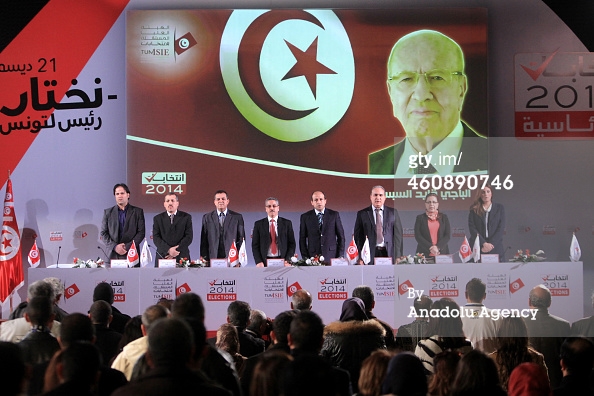Despite hardships and breaches that marred the electoral campaign depriving scores of citizens, mainly outside the country, from their right to vote, the electoral process was rather successful. Tunisia has had transparent elections and has taken an important step in the democratic process. Two main concerns, however, remain: the terrorist threats that are still hanging over the region and the economic and social uncertainties that threaten the stability of the country.
In fact, the legislative elections have ended a three-year hegemony of the governing troika ,that have seen an erosion of their popularity because of risky day-to-day management of the country affairs, the propensity of the dominant political party ,Ennahda, to hold the state apparatus and impose its ideological choices.
This in fact is the novelty of the new legislative elections: while the 2011 legislative elections established effective control of the Islamist Party over the State apparatus, those of 2014 have inaugurated a new era in the region with respect to power: the possibility of political change through the ballot box .
According to some observers, the relative defeat of Ennahda in the last legislative elections occurred following the Muslim brotherhood had taken a severe blow after both popular demonstrations and a bloody military coup. In Tunisia, the handover of power was done smoothly and in accordance with the principles of democracy.
We might also add that, regardless of the outcome of the presidential elections, no political party could impose its diktat and policies for several reasons:
- Freedom of expression, despite some slippages, seems irreversible as has been proven through recent years;
- The Party “Nidaa Tounes” (Call of Tunisia) that has won the elections does not have an absolute majority and it will have to cope with other parliamentary groups to form the government;
- Tunisian civil society has demonstrated both dynamism and pugnacity during the three-year power struggle to defend basic freedoms and prevent the draft of a tailor-made constitution. So we could bet on its vigilance against any retrograde steps and the return of old –and recent – inherited dictatorial habits.
More safeguards need, though, to be provided against possible abuses: strong institutions, protection and independence of civil society associations, balance of power and the independence of the judiciary.
The social and economic situation will be a major challenge during the coming period as the country faces one of the worst slumps in decades; a legacy of the Ben Ali’s regime and, also, a result of the continuation of the same policies by the post-revolutionary governments. In this respect, the partial- and often unrealistic- nature of the electoral programs put forward by different political parties do not bode well for the social stability of the country.
Those who are going to take the reins of power must be aware that it won’t be a walk in the park. It is not just to achieve the objectives of the democratic transition which is at issue here, but also to better manage the social impacts of the economic crisis. Ordinary good people look forward to the day when they see concrete improvements in their every-day life, a tangible plan of action against poverty, unemployment, and regional inequities.
Not taking such social challenges into account could lead to more costly outcomes than one might have expected. Not only because that would leave the door open for social protests, including violent clashes, but also because the fight against terrorism does not depend only on the restoration of State authorities, as has been insinuated quite often. It is more a question of a balanced regional development and social inclusion. A harsh combat against despair.
That does not, in any way, mean that the draft of the constitution, the implementation of regulatory bodies, the election of the President are simple things. They are going to anchor the Tunisian democratic experience, demonstrate that what happened on the 14th January 2O11 was no accident and that the alternative to dictatorship in the region is not necessarily between dictatorship or the extremists of Daesh and their emulators.
Committee for the Respect of Liberties and Human Rights in Tunisia
 Log in
Log in









